All of the resources featured on this site were produced by the organizations listed below. We encourage you to visit these sites directly to further explore what they have to offer!

Appalachian Center for Economic Networks. The Appalachian Center for Economic Networks (ACEnet) builds the capacity of Appalachian communities to network, work together, and innovate to create a dynamic sustainable regional economy with opportunities for all. ACEnet offers assistance on business incubation, loan funds, building business capacity, marketing & distribution, and product development. Visit the website at www.acenetworks.org.
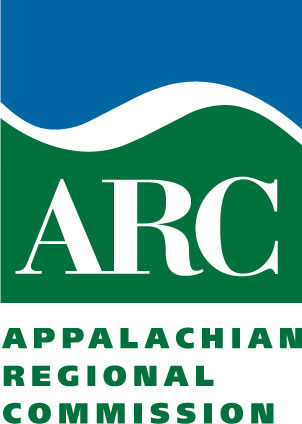
Appalachian Regional Commission. The Appalachian Regional Commission (ARC) is a regional economic development agency that represents a partnership of federal, state, and local government. Established by an act of Congress in 1965, ARC is composed of the governors of the 13 Appalachian states and a federal co-chair, who is appointed by the president. Local participation is provided through multi-county local development districts. Visit the website at www.arc.gov.

Benedum Foundation. The Benedum Foundation’s mission is to encourage human development in West Virginia and Southwestern Pennsylvania through strategically placed charitable resources. The Foundation encourages planning, projects and programs that cross geographical and political boundaries; expects collaboration among the public, private and nonprofit sectors; and strives to advance innovation practices that demonstrate measurable and sustainable benefit. Visit the website at www.benedum.org.

Brookings. The Brookings Institution is a nonprofit public policy organization based in Washington, DC. Its mission is to conduct high-quality, independent research and, based on that research, to provide innovative, practical recommendations that advance three broad goals: Strengthen American democracy; Foster the economic and social welfare, security and opportunity of all Americans; and Secure a more open, safe, prosperous and cooperative international system. Visit the website at www.brookings.edu.
Center for American Progress. The Center for American Progress is an independent nonpartisan policy institute that is dedicated to improving the lives of all Americans, through bold, progressive ideas, as well as strong leadership and concerted action. CAP develops new policy ideas, challenges the media to cover the issues that truly matter, and shapes the national debate. With policy teams in major issue areas, CAP can think creatively at the cross-section of traditional boundaries to develop ideas for policymakers that lead to real change. Visit the website at www.americanprogress.org.

Center for Regional Economic Competitiveness. The Center for Regional Economic Competitiveness (CREC) is an independent, not-for-profit organization founded to provide policy-makers from around the world with the information and technical assistance they need to formulate and execute innovative, regional, job-creating economic strategies. Visit the website at www.creconline.org.

Center for Rural Entrepreneurship. The Center for Rural entrepreneurship is a go-to resource for rural America in terms of entrepreneur-focused development. The Center’s work addresses development associated with business, social and civic entrepreneurship. The Center has always played, and will continue to play, an intermediary role vis-à-vis rural entrepreneurs, and continues to evolve its solution areas and services in order to continue to be relevant to the entrepreneurship movement in the U.S. Visit the website at www.energizingentrepreneurs.org.

Community Foundation of Western North Carolina. The Community Foundation of Western North Carolina inspires philanthropy and mobilizes resources to enrich lives and communities in Western North Carolina. The Community Foundation is a nonprofit organization established in 1978 to build a permanent pool of charitable capital for the 18 counties of Western North Carolina. It works with individuals, families and corporations to create and manage charitable funds and make grants to nonprofits or public agencies in our region. Visit the website at www.cfwnc.org.
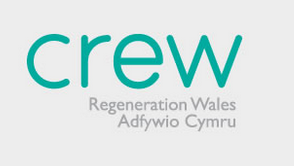
Crew. Crew was established in early 2010 following recommendations by a Task and Finish Group which reported in 2009. Four key tasks were identified for the organization: Training, education and skills; Rigorous research; Information and dissemination; and Exchange of experience and excellence. These four activities are set within an overall approach that seeks to establish more integrated regeneration practice across Wales. Visit the website at regenwales.org.
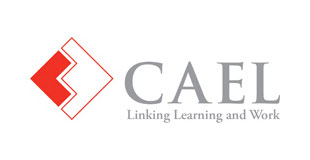
Council for Adult and Experiential Learning. CAEL advocates and innovates on behalf of all adult learners, regardless of their socio-economic circumstances, to increase access to education and economic security and to develop and provide effective services and tools. CAEL works to enhance its thought leadership role through its research and work with adult learners, postsecondary education institutions, employers and government. Visit the website at www.cael.org.

EntreWorks Consulting. EntreWorks Consulting is an economic development consulting and policy development firm focused on helping communities, businesses, and organizations achieve their entrepreneurial potential. EntreWorks Consulting works with communities, organizations, and civic leaders to design, implement, and promote innovative economic development strategies, policies, and programs. Visit the website at www.entreworks.net.

Ford Foundation. The Ford Foundation is an independent, nonprofit, nongovernmental organization, with its own board, and is entirely separate from the Ford Motor Company. The trustees of the foundation set policy and delegate authority to the president and senior staff for the foundation’s grant making and operations. Program officers in the United States, Africa, the Middle East, Asia and Latin America explore opportunities to pursue the foundation’s goals, formulate strategies and recommend proposals for funding. Visit the website at www.fordfoundation.org.
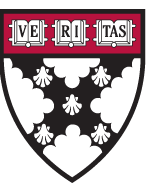
Harvard Business School Institute for Strategy & Competitiveness. The Institute for Strategy and Competitiveness is a nonprofit research and education organization founded by Michael Porter and based at Harvard Business School in Boston, Massachusetts. The Institute is dedicated to extending the research pioneered by Michael Porter and disseminating it to scholars and practitioners on a global basis. Its mission is to advance scholarship, advise leaders and policymakers, and develop practical, research-based frameworks in three broad areas: The study of competition and its implications for company strategy; The competitiveness of nations, regions, and cities; and The relationship between competition and society. Visit the website at www.isc.hbs.edu.

Mountain Association for Community Economic Development. The Mountain Association for Community Economic Development (MACED) partners with local people to build upon the strengths of Kentucky and Central Appalachia. It creates economic alternatives and strives to make Appalachian communities better places to live. Its three core strategies are: Community Investment, Demonstration Initiatives and Research and Communications for Policy Change. Visit the website at www.maced.org.

National Association of Counties. The National Association of Counties (NACo) is the only national organization that represents county governments in the United States. Founded in 1935, NACo assists America’s 3,069 counties in pursuing excellence in public service to produce healthy, vibrant, safe and resilient counties. NACo promotes sound public policies, fosters county solutions and innovation, promotes intergovernmental and public-private collaboration and provides value-added services to save counties and taxpayers money. Visit the website at www.naco.org.

National Association of Development Organizations. The National Association of Development Organizations (NADO) provides advocacy, education, research, and training for the nation’s regional development organizations. The association and its members promote regional strategies, partnerships, and solutions to strengthen the economic competitiveness and quality of life across America’s local communities. Visit the website at www.nado.org.

Partnership for Sustainable Communities. The Partnership for Sustainable Communities (PSC) was founded in 2009 as a joint program of the U.S. Environmental Protection Agency, U.S Department of Transportation and U.S. Department of Housing and Urban Development. It works to coordinate federal housing, transportation, water and other infrastructure investments to make neighborhoods more prosperous, allow people to live closer to jobs, save households time and money and reduce pollution. Visit the website at www.sustainablecommunities.gov.

Renew Appalachia. Renew Appalachia is devoted to ideas for a more just, sustainable and prosperous economic future in eastern Kentucky and Central Appalachia. The Renew Appalachia blog is a resource for the conversation about the coming transition of the region’s economy, workforce and communities. Visit the website at www.appalachiantransition.org.

Rural Policy Research Institute: State Policy Initiative. The Rural Policy Research Institute (RUPRI) provides unbiased analysis and information on the challenges, needs, and opportunities facing rural America. RUPRI’s aim is to spur public dialogue and help policymakers understand the rural impacts of public policies and programs. The state Policy Initiative is an exciting new program that will provide rural policy leaders with powerful, proven tools to enhance rural research, practice and public policy at the state level. Visit the website at www.rupri.org/areas-of-work/state-policy.

Smart Growth America. Smart Growth America advocates for people who want to live and work in great neighborhoods. It is the only national organization dedicated to researching, advocating for and leading coalitions to bring smart growth practices to more communities nationwide. Its solutions include: Coalition Building, Policy Development and Research. Visit the website at www.smartgrowthamerica.org.

SOAR Kentucky. SOAR Kentucky, created in 2013, is the result of a collaboration between Kentucky Governor Steve Beshear and Congressman Hal Rogers to create an initiative to address the challenges facing Eastern Kentucky. SOAR’s mission is to expand job creation, enhance regional opportunity, innovation, and identity, improve the quality of life, and support all those working to achieve these goals in Appalachian Kentucky. Visit the website at www.soar-ky.org.
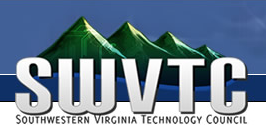
Southwestern Virginia Technology Council. Organized in 1999, the Southwestern Virginia Technology Council’s mission is to lead Southwestern Virginians in addressing technology issues for business, education and government with the purpose of enhancing the vitality and social well-being of Southwestern Virginia. Council membership includes businesses, institutions and individuals from the Wytheville region to the far western corner of Virginia. Visit the website at www.swvtc.org.
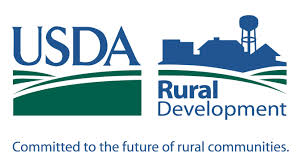
U.S. Department of Agriculture: Rural Development. USDA Rural Development is committed to helping improve the economy and quality of life in rural America. It offers loans, grants and loan guarantees to support essential services such as housing, economic development, health care, first responder services and equipment, and water, electric and communications infrastructure. Visit the website at www.rd.usda.gov.

U.S. Economic Development Administration. The EDA leads the federal economic development agenda by promoting innovation and competitiveness, and preparing American regions for growth and success in the worldwide economy. As the only federal government agency focused exclusively on economic development, the EDA plays a critical role in fostering regional economic development efforts in communities across the nation. Through strategic investments that foster job creation and attract private investment, EDA supports development in economically distressed areas of the United States. Visit the website at www.eda.gov.

U.S. EDA: Know Your Region. Funded by the U.S. EDA and managed by the NADO Research Foundation, this research project explores regional and local approaches to economic innovation and competitiveness across the United States. The resources developed as part of the overall project curriculum, as well as the Know Your Region online clearinghouse, are intended to help local officials, economic development practitioners, community leaders and citizens assess local and regional assets, needs and visions in a global context, leading to long-term regional prosperity and sustainability. Visit the website at www.knowyourregion.org.

U.S. EPA: Office of Brownfields and Land Revitalization. EPA’s Brownfields Program is designed to empower states, communities, and other stakeholders in economic redevelopment to work together in a timely manner to prevent, assess, safely clean up and sustainably reuse brownfields. Visit the website at www.epa.gov/brownfields.

U.S. EPA: Office of Sustainable Communities. This EPA program helps communities improve their development practices and get the type of development they want. The Office of Sustainable Communities works with local, state, and national experts to discover and encourage successful, environmentally sensitive development strategies. Visit the website at www.epa.gov/smartgrowth.

U.S. Department of Housing and Urban Development. HUD’s mission is to create strong, sustainable, inclusive communities and quality affordable homes for all. HUD is working to strengthen the housing market to bolster the economy and protect consumers; meet the need for quality affordable rental homes; utilize housing as a platform for improving quality of life; build inclusive and sustainable communities free from discrimination, and transform the way HUD does business. Visit the website at www.hud.gov.

WealthWorks. WealthWorks brings together and connects a community’s assets to meet market demand in ways that build livelihoods that last. It aims to advance a region’s overall prosperity and self-reliance, strengthen existing and emerging sectors, and increase jobs and incomes for lower-income residents and firms. It can work for people, firms and places of all sizes, shapes and success levels. Visit the website at www.wealthworks.org.